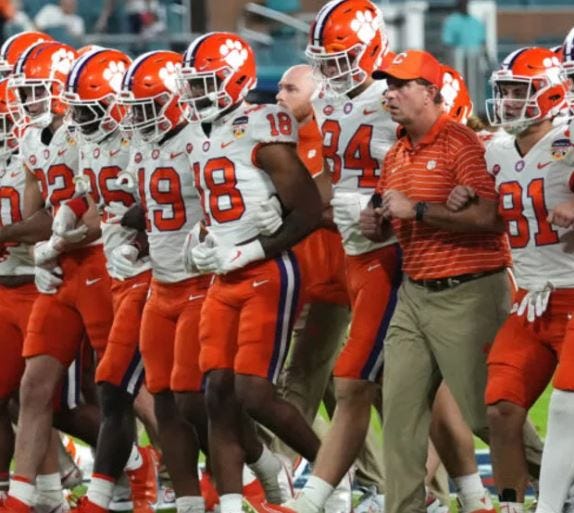Interesting writeup (looks like the beginning of a longer writeup) on Substack from someone with substantial actual and teaching experience in public finance and public policy and is experienced in knowing how local and state governments distribute the financial benefits of taxes collected from tourism, sports, and entertainment projects.
Biggest takeaway from the writeup:
"From my research and experience, I can confidently state that 1) States and cities with FBS division universities are deriving significant economic and tax benefits from the athletic events held on those campuses, 2) Those economic and tax benefits, for the most part, come with minimal public funding support (free-riding), and 3) States and cities that host FBS division universities use tax dollars to support competing sports, entertainment, and tourism activities that provide far less economic value than college sports."
"The tourism revenue comes in the form of taxes and surcharges on hotel and rental car charges or ticket surcharges. This revenue source alone dwarfs the media revenue distributed to CFB. According to the 2022 US Economic Census, the accommodation industry earned $301 billion in revenue in 2022, up from $260 billion in 2017. Using a hotel tax rate of 10% for estimating purposes, state and local governments are collecting as much as $30.1 billion in revenue from hotel occupancy."
The point of the writeup is that most football programs in the ACC, Big 12, and Pac 2/MWC will not suffer significant damage from changes in media revenue distribution and student-athlete compensation requirements, using framework with a more useful “big market vs. small market” dichotomy.

 billfarley.substack.com
billfarley.substack.com
Biggest takeaway from the writeup:
"From my research and experience, I can confidently state that 1) States and cities with FBS division universities are deriving significant economic and tax benefits from the athletic events held on those campuses, 2) Those economic and tax benefits, for the most part, come with minimal public funding support (free-riding), and 3) States and cities that host FBS division universities use tax dollars to support competing sports, entertainment, and tourism activities that provide far less economic value than college sports."
"The tourism revenue comes in the form of taxes and surcharges on hotel and rental car charges or ticket surcharges. This revenue source alone dwarfs the media revenue distributed to CFB. According to the 2022 US Economic Census, the accommodation industry earned $301 billion in revenue in 2022, up from $260 billion in 2017. Using a hotel tax rate of 10% for estimating purposes, state and local governments are collecting as much as $30.1 billion in revenue from hotel occupancy."
The point of the writeup is that most football programs in the ACC, Big 12, and Pac 2/MWC will not suffer significant damage from changes in media revenue distribution and student-athlete compensation requirements, using framework with a more useful “big market vs. small market” dichotomy.

ESPN & Fox Can't Kill College Football
Neither can the Big 10 or SEC Commissioners

